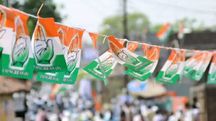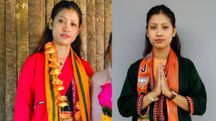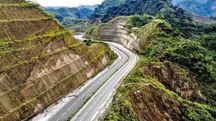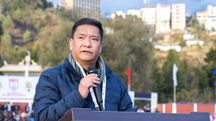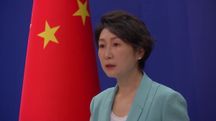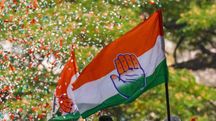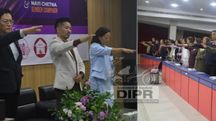National seminar at JNC Pasighat calls for indigenous-led archaeological research in Arunachal
A two-day National Seminar on Archaeology in Arunachal Pradesh commenced on Thursday and concluded today. It was organized by the Department of History, Jawaharlal Nehru College (JNC), Pasighat, in East Siang district, and sponsored by the Indian Council of Historical Research (ICHR). The event was coordinated by Dr. Leki Sitang, Vice Principal of JNC, along with co-coordinators Dr. P.D. Mize and Dr. Nuyu Mize, under the supervision of the History Department HoD, Talut Talom.
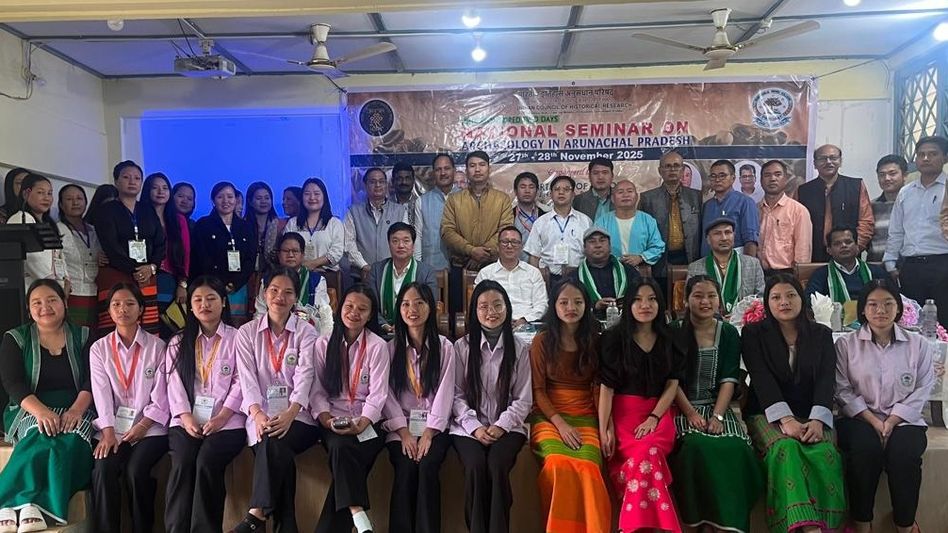
- Seminar stressed indigenous-led archaeological research in Arunachal.
- Dr. Sitang urged reconstructing history beyond outsider narratives.
- Prof. Tripathy emphasized holistic view of Arunachal's history.
A two-day National Seminar on Archaeology in Arunachal Pradesh commenced on Thursday and concluded today. It was organized by the Department of History, Jawaharlal Nehru College (JNC), Pasighat, in East Siang district, and sponsored by the Indian Council of Historical Research (ICHR).
The event was coordinated by Dr. Leki Sitang, Vice Principal of JNC, along with co-coordinators Dr. P.D. Mize and Dr. Nuyu Mize, under the supervision of the History Department HoD, Talut Talom.
The inaugural session began with the felicitation of guests, followed by the welcome address by Coordinator Dr. Leki Sitang, who outlined the seminar’s core objective of historical reclamation. “We must actively reconstruct and reinvent our own history, moving beyond merely accepting what has been served to us by outsiders. Through true, diligent study and careful interpretation of archaeological data, we can collectively forge a more authentic and inclusive account of the past one that genuinely speaks for us, the people of this land,” Dr. Sitang said.
The keynote address was delivered by Prof. Byomkesh Tripathy, who spoke on the region’s multidirectional historical connections. He emphasized that the field of Art and Archaeology in Arunachal Pradesh remains vast and largely unexplored.
“To properly understand the past, we must adopt a holistic view that integrates geography, the history of neighboring regions, and the tracking of ancient trade and migration routes,” Prof. Tripathy said. “This approach highlights how the hilly regions share profound historical and cultural similarities with Tibet and Myanmar, while the foothills connect seamlessly with the historical flows of the rest of India. Crucially, a truly authentic study requires taking into account how local tribes perceive their own cultural history, centering their indigenous knowledge systems as an essential, non-negotiable part of our collective understanding.”
Oken Tayeng, MLA from the 39th Mebo Assembly Constituency and Chief Guest of the inaugural day, stressed the national significance of centering indigenous perspectives.
“The foundational understanding of Arunachal Pradesh’s archaeology, culture, and history must originate from the narratives of its local people,” Tayeng asserted. “Tribal wisdom, history, and oral traditions — when rooted and tested against evidence from archaeological sites are indispensable. Every piece of debris uncovered is like the unfolding of a mystery. Therefore, archaeological discourse in Arunachal must urgently increase the involvement of local communities and foster deeper, more inclusive public discussions,” he added.
JNC Principal Tasi Taloh remarked on the institution’s commitment to the cause: “Local wisdom and history must never be erased. It is essential that we ensure consistent, meaningful local input in all our research initiatives. As the Principal, I am profoundly grateful and proud that these vital discussions centering the authentic voices of our land are finally taking place within the walls of this institution.”
On the occasion, an abstract volume of the seminar’s proceedings was officially released by the dignitaries.
The day’s programme included two insightful technical sessions.
The first session was led by Prof. Marco Babit Mitri from the Department of History, NEHU, who emphasized the need for a new methodological framework. “The future of history requires us to forge a genuine connection between archaeological materials and modern narratives. We must actively corroborate local myths and oral histories with tangible evidence, recognizing the very landscape as a living memory. This process demands amplifying local voices and incorporating indigenous interpretations to construct dynamic, shifting narratives that faithfully represent the past. We must decisively move beyond any ‘blanket understanding’ and embrace the rich complexity of this region’s heritage,” he said. The session concluded with focused paper presentations from delegates.
The second technical session featured Prof. Chandan Kr Sharma from the Department of History, Dibrugarh University. Prof. Sharma focused on cultural connectivity, stating: “Our traditions and stories are invaluable, and grounding them in systematic, scientifically acceptable archaeological evidence broadens the world’s understanding of our culture. Every structure and artifact proves that no community is entirely isolated. Archaeology is the definitive tool that helps us understand the mobility and interconnected nature of our cultural history, revealing how we have always moved, connected, and exchanged ideas.” The session was followed by productive paper presentations and scholarly discussions.
The National Seminar on Archaeology in Arunachal Pradesh concluded today with deliberations and the valedictory session.
Copyright©2025 Living Media India Limited. For reprint rights: Syndications Today
